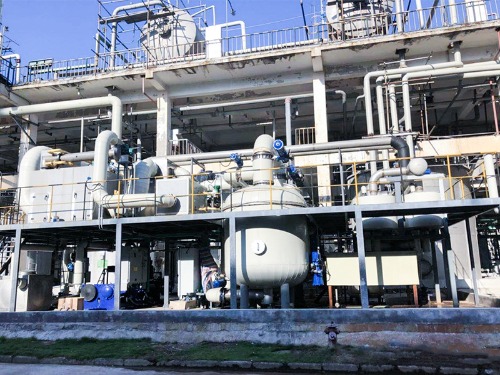Pesticide chemicals waste gas treatment is the process of removing harmful gases and pollutants generated during the production, use, or disposal of pesticide chemicals. These gases may contain toxic and hazardous substances that can pose serious risks to human health and the environment if left untreated.
The process of pesticide chemicals waste gas treatment typically involves the use of various technologies and equipment to capture, neutralize, or convert the harmful gases into less harmful compounds. Some common methods used for pesticide chemicals waste gas treatment include:Adsorption: Adsorption involves the use of a material, such as activated carbon or zeolite, to absorb or trap the harmful gases.Absorption: Absorption involves the use of a liquid or solid substance, such as water or sodium hydroxide, to dissolve the harmful gases and neutralize them.Thermal Oxidation: Thermal oxidation involves the use of high temperatures to break down the harmful gases into less harmful compounds, such as carbon dioxide and water.Catalytic Oxidation: Catalytic oxidation involves the use of a catalyst, such as platinum or palladium, to speed up the oxidation process and convert the harmful gases into less harmful compounds.Biofiltration: Biofiltration involves the use of microorganisms, such as bacteria or fungi, to break down the harmful gases into less harmful compounds.
The specific method used for pesticide chemicals waste gas treatment will depend on the type and concentration of the harmful gases, as well as the location and regulations governing the treatment process. Proper pesticide chemicals waste gas treatment is crucial to ensure the safety of workers, the community, and the environment.Meanwhile,Pesticide chemicals waste gas treatment is crucial for several reasons:
Protection of Human Health: Pesticide chemicals waste gas can contain harmful pollutants and toxins that can pose serious health risks to people, such as respiratory problems, skin irritation, and other chronic diseases. Proper waste gas treatment can remove these harmful pollutants and protect human health.Protection of the Environment: Pesticide chemicals waste gas can also contain pollutants that can harm the environment, such as soil, water, and air. These pollutants can accumulate in the environment, leading to long-term damage to ecosystems and wildlife. Proper waste gas treatment can prevent or minimize the release of these harmful pollutants into the environment.Compliance with Regulations: Governments have established regulations and standards for the treatment and disposal of pesticide chemicals waste gas. Failure to comply with these regulations can result in legal penalties and reputational damage to the company.Safety of Workers: Workers who are exposed to harmful pesticide chemicals waste gas can suffer from serious health problems. Proper waste gas treatment can create a safer working environment for employees.Sustainability: Proper pesticide chemicals waste gas treatment is an essential part of sustainable production and consumption practices. Reducing the amount of waste and harmful pollutants generated during the production and use of pesticide chemicals can help minimize the negative impact on the environment and promote sustainable practices.
Overall, pesticide chemicals waste gas treatment is essential to protect human health, the environment, and promote sustainable practices. It is crucial for companies to prioritize proper waste gas treatment to ensure compliance with regulations, protect their employees, and minimize their impact on the environment.




 English
English 简体中文
简体中文
